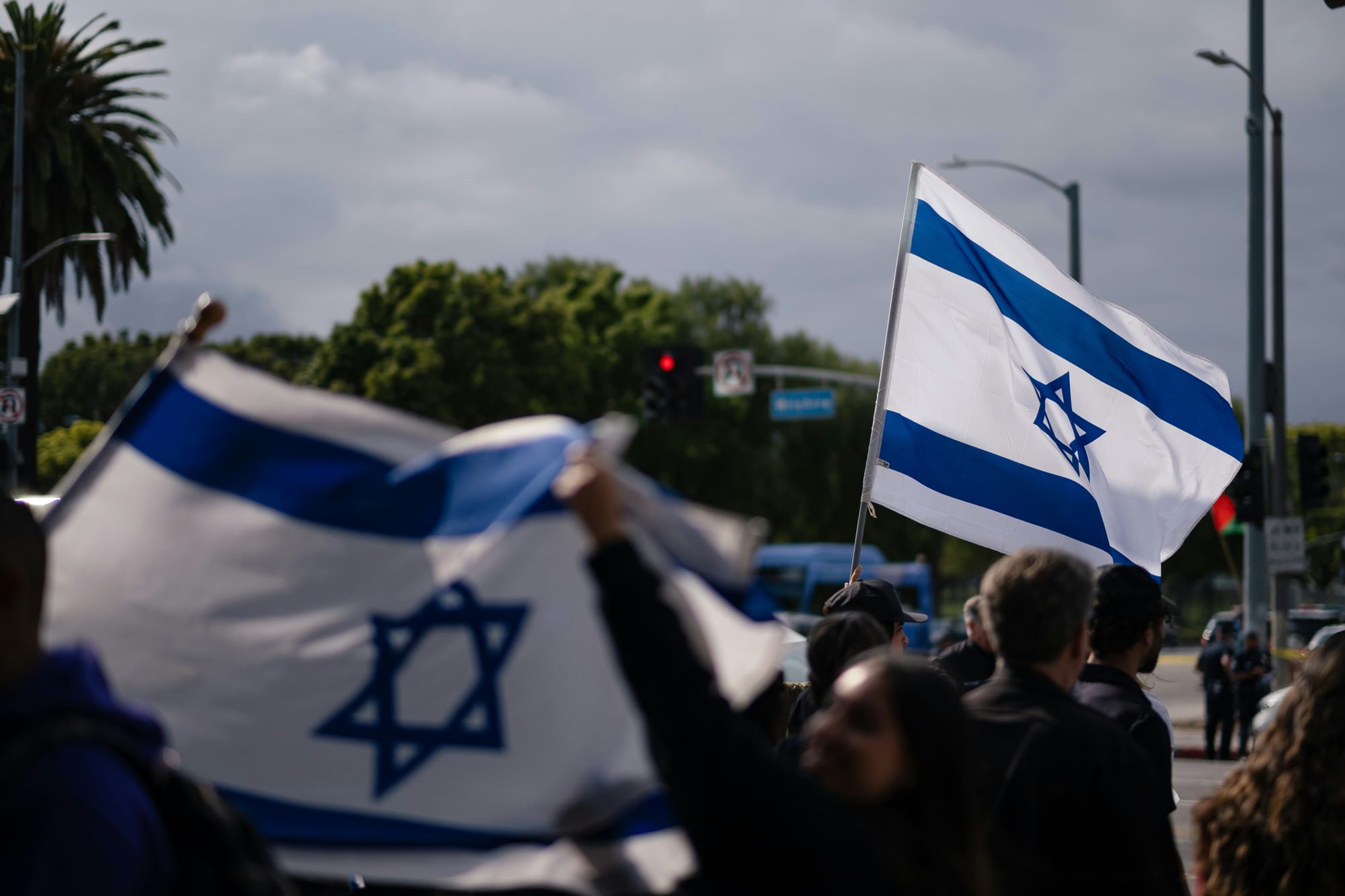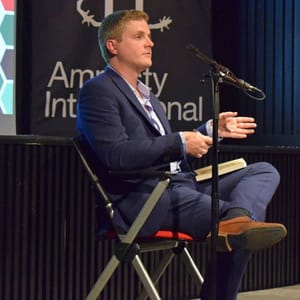The IHRA censors Palestinians by design, not by accident
What constitutes ‘legitimate’ and ‘illegitimate’ criticism of Israel is determined by individuals who believe BDS and discussion of Israeli apartheid to be beyond the pale.

Last month, Palestinian and Arab scholars expressed profound concern at how a working definition of antisemitism (WDA) adopted by the International Holocaust Remembrance Alliance (IHRA) is being “applied, interpreted and deployed in several countries of Europe and North America”.
Specifically, the signatories drew attention to what they argued is the use of the working definition to “delegitimise the Palestinian cause and silence defenders of Palestinian rights”.
Others have expressed similar criticism; Americans for Peace Now recently rejected the IHRA citing its “imprecise, overreaching wording”, and in light of “how it is already being abused, indeed weaponized, to quash legitimate criticism and activism directed at Israeli government policies”. Foundation for Middle East Peace president Lara Friedman, meanwhile, sees the US government’s targeting of civil society groups as “an inevitable consequence…of the effort to enforce the IHRA’s politicised definition of antisemitism”, while the UK-based Pears Institute’s David Feldman has also warned of its“chilling impact” on campus free speech.
The IHRA WDA’s advocates, however, reject these critiques. Not only does the WDA have nothing to do with preventing criticism of Israel, they claim, but to even suggest it does could itself interpreted as antisemitic (incredibly, an accusation levelled at David Feldman). On the rare occasion that incidents of censorship are even addressed, their significance is implausibly dismissed.
Yet an examination of the evidence – how key individuals behind the WDA understand its meaning vis-à-vis Israel and Zionism, and second, how the definition is being used – confirm precisely the warnings made by the WDA’s critics.
The “architect” of the WDA was Mark Weitzman, director of government affairs for the Simon Wiesenthal Centre. It was in his capacity as the then-chair of IHRA’s Committee on Antisemitism and Holocaust Denial, that Weitzman introduced and steered the definition to adoption.
In stark contrast to those who claim the definition is not intended to censor Palestinians and their allies, Weitzman has openly welcomed its use in efforts to sabotage Israeli Apartheid Week events on university campuses. In a 2018 interview, Weitzman specifically cited the cancellation of one such event the previous year as an example of the “practical applications of the IHRA definition”.
At an event this past February, Weitzman declared that the Palestinian-led, civil society Boycott, Divestment, Sanctions (BDS) Movement “directly clashes with the IHRA definition”. In a document on the WDA published this year, Weitzman wrote – approvingly – that “European countries who’ve adopted the definition have used it as the basis of legislation condemning anti-Zionism and BDS”.
But it’s not just Weitzman. The text of the IHRA’s WDA almost exactly reproduces a document with an older history – what was once known as the European Monitoring Centre on Racism and Xenophobia (EUMC) working definition of antisemitism. Andrew Baker, the American Jewish Committee’s Director of International Jewish Affairs, was part of the group that drafted that original EUMC text.
While some have tried to argue that the IHRA’s reference to a “racist endeavour” is about the mere principle of Jewish self-determination, Baker has been clear that the reference is not at all theoretical. “When you suggest…that it’s [the State of Israel] a racist endeavour, we’re very clear, this is not criticism, this is a form…of antisemitism”, Baker told a November online event.
Another co-drafter of the original EUMC document was Dina Porat, head of the Tel Aviv University-based Kantor Centre. Under Porat’s leadership, the Kantor Centre’s annual report for 2019 cited the German and Austrian parliaments’ description of the BDS Movement as antisemitic as constituting one of the year’s “significant achievements”.
Finally, take Eric Pickles, the UK government’s Special Envoy for post-Holocaust issues, and head of the UK delegation to the IHRA. According to the government, the Pickles-led delegation “played an active role in supporting IHRA’s adoption in May 2016 of a working definition of anti-Semitism”.
Pickles is under no illusions about the role of the WDA, telling an online event in September that “those who object to it [the definition] want to…be able to suggest that Israel is an apartheid state”. In 2019, Pickles told a conference in Jerusalem: “BDS is anti-Semitic and should be treated as such”.
Those promoting the WDA stress that the definition allows for “legitimate” criticism of Israel. Yet the above evidence demonstrates that what constitutes ‘legitimate’ and ‘illegitimate’ is determined by individuals who believe the BDS Movement and discussion of Israeli apartheid to be beyond the pale.
But what about how the definition is being used in practice? By now, there are numerous examples of censorship, attempted censorship, and various efforts to toxify and delegitimise efforts by Palestinians and their allies to discuss, and oppose, Israeli human rights violations.
In 2017, officials at the University of Central Lancashire banned an event scheduled to take place as part of Israeli Apartheid Week, citing the WDA. Mark Weitzman hailed the decision as “firm evidence” of the WDA’s “vital role in the fight against antisemitism”.
The following year, the Campaign Against Antisemitism – after taking credit for contributing to the process by which the UK adopted the WDA – praised those university officials for their “principled leadership” in restricting Israeli Apartheid Week events the previous year.
Some are even more strident. According to Michael McCann of the Israel-Britain Alliance, an initiative launched by the Zionist Federation, “the words ‘Israel Apartheid Week’ are manifestly anti-Semitic and violate the IHRA”. One Tory MP has suggested legislation to ban Israeli Apartheid Week.
This goes wider than annual events. Law lecturer Lesley Klaff, Editor-in-Chief of the Journal of Contemporary Antisemitism, claimed in The Jewish Chronicle in October that to simply talk of Israel as a “settler-colonial society” – analysis based on a decades-old, wide-ranging, scholarly body of work – is the kind of claim “that the IHRA definition…stigmatises as antisemitic”.
Meanwhile,“right-wing activists” in the US “are attempting to spread new laws” that would “suppress criticism on public university campuses of Israel and its occupation of Palestinian territory”, using a definition of antisemitism almost identical to the IHRA’s WDA.
Nor is it just on university campuses where the WDA is being used to shield Israel from criticism. In 2018, for example, the European Jewish Congress and AJC urged EU officials to ban Palestinian human rights defender and BDS co-founder Omar Barghouti from addressing a meeting in the European Parliament, accusing him of “antisemitic hate speech” based on the WDA.
In 2019, the Simon Wiesenthal Centre “condemned” a Somerset House exhibition featuring photos from Palestinian protests in Gaza, claiming that the “series description” was “one-sided” – and thus “violates” the WDA. That same year, a London council “refused to host a charity event in aid of Palestinian children…based on fears their criticism of Israel could breach antisemitism guidelines”.
Israeli authorities have also sought to utilise the WDA in their own efforts to smear human rights defenders and Palestine solidarity activism; a government report in 2016 identified the “main innovation” in the WDA as “expressions of Antisemitism directed against the State of Israel”, adding: “in other words, the definition also refers to anti-Zionism…as a form of Antisemitism”.
Since then, the Institute for National Security Studies, a prominent Israeli think tank, has recommended that the Israeli government “work strategically, hand-in-hand with Brussels and member states to counter delegitimisation efforts targeting Israel, by encouraging additional European states to endorse and enforce the IHRA definition of anti-Semitism”.
In 2019, Gilad Erdan, the then-Minister for Strategic Affairs, praised the role of the WDA in combating BDS, and hailed “the ground-breaking resolution of the Bundestag recognising the anti-Semitic nature of BDS” as “the most important step yet”. An Israeli government report published the same year aimed at European policymakers attacked BDS as antisemitic, again based on the WDA.
As the above evidence demonstrates (and it is by no means comprehensive), the WDA is undeniably being used to silence and smear Palestinians and their allies. Furthermore, given the stated views of the key individuals behind the WDA, it is simply not credible to suggest that such activities constitute a ‘misuse’ of the definition. As these facts become more widely known and understood, the kind of pushback against the WDA already seen from various quarters is – and should be – only set to grow. ▼
Ben White is a writer, journalist, and analyst. He is the author of ‘Cracks in the Wall: Beyond Apartheid in Palestine/Israel.’
Author

Ben White is a writer, journalist, and analyst. He is the author of ‘Cracks in the Wall: Beyond Apartheid in Palestine/Israel.’
Sign up for The Pickle and New, From Vashti.
Stay up to date with Vashti.



